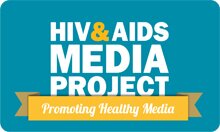If I’m HIV positive I cannot have children
You can have children if you are HIV positive. However there are a number of different factors and related options, which need to be considered to help prevent not only parent to child transmission but also the infection or reinfection of a sexual partner.
Serodiscordant partners
When two people are HIV serodiscordant it means that one partner is HIV-positive, while the other is HIV-negative. The options which a couple can use to conceive a child depend on which partner is HIV-positive.
HIV-positive woman/HIV-negative man
In this case artificial insemination may be used so that there is no risk of the HIV-negative male partner contracting the virus through unprotected sexual intercourse. In this process semen is deposited into the vagina artificially and fertilisation happens within the uterus (intrauterine fertilisation).
In Vitro Fertilisation or IVF is the process whereby the woman’s egg cells are fertilised by the sperm outside of the body, the resulting embryo is then placed inside the uterus.
HIV-positive man/HIV-negative woman
If the man is HIV-positive the only definitive way to protect his HIV-negative partner during conception is through sperm washing. During this procedure the sperm are separated from the seminal fluid. The sperm are then tested for HIV before artificial insemination or in vitro fertilisation is performed.
HIV-positive man or woman
Successful Anti-retroviral treatment can also render an HIV positive person non-infectious (although that person is still HIV-positive) and natural conception can then take place. Although this practice significantly reduces the chances of partner infection and parent to child transmission it is not hundred percent effective.
Seroconcordant partners
Seroconcordant is the opposite of serodiscordant, in this case both partners have the same HIV status. Either both are HIV-positive or both are HIV-negative. When both people in the relationship are HIV-positive it is best to adhere to prevention of mother-to-child transmission guidelines Journaids, PMTCT information. Sperm washing and artificial insemination can also be used to avoid each partner reinfecting the other.
All of the above methods of conception provide protection to the HIV-negative partner against contracting the virus. In the case of HIV-positive seroconcordant partners these methods prevent reinfection. However it is essential that HIV-positive mothers take antiretroviral drugs (ARVs) in order to prevent mother-to-child transmission (MTCT) of HIV during pregnancy, labour, delivery and breastfeeding.
In all cases it is advisable to consult a medical practitioner.
Further Reading

